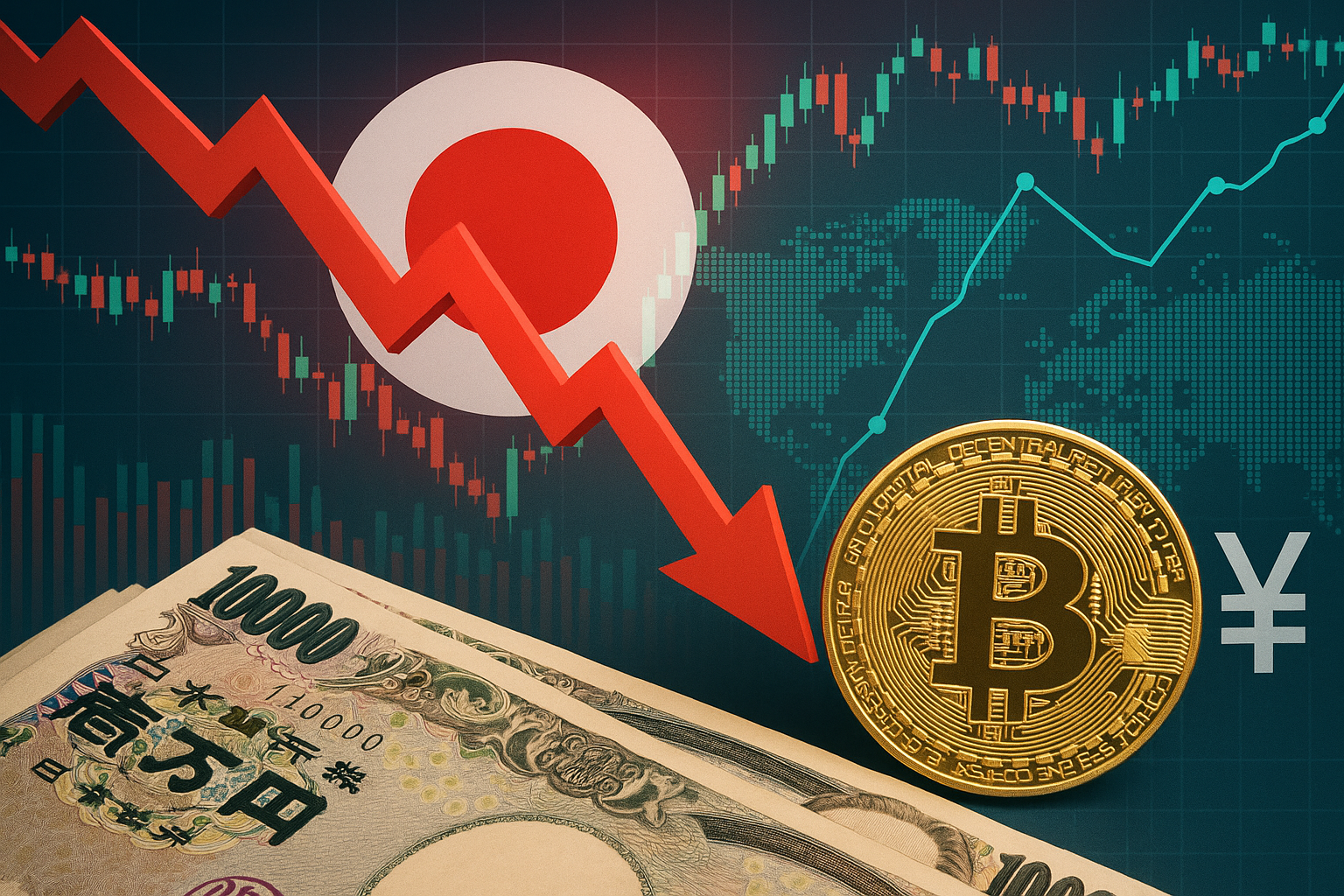
Japan’s Game-Changing Stimulus Package Shakes Global Markets
The latest economic decisions from Japan have sent shockwaves through the global financial landscape. With the yen sliding to historic lows and bond yields soaring, the repercussions are being felt across currency, bond, and even cryptocurrency markets. Here’s how it all unfolds and what it could mean for global investors.
The Highlights of Japan’s Stimulus Plan
On Friday, Japan’s government approved a record-breaking 21.3 trillion yen stimulus package – the most substantial since the COVID-19 outbreak. Aimed at easing inflation, bolstering economic growth, and strengthening defense, this financial injection intends to breathe new life into Japan’s struggling economy.
Key measures within the package include energy subsidies, local government grants, and direct household benefits of around 7,000 yen spread over three months. Additionally, defense spending is scheduled to rise to 2% of GDP by 2027, reflecting the country’s intensified focus on global security and diplomacy.
Economic Challenges: Rising Inflation and Weak Growth
Despite the massive financial support, Japan faces significant challenges. GDP contracted by 0.4% in Q3 of 2025, marking a 1.8% annualized decline. Inflation has surpassed 3%, staying above the Bank of Japan’s 2% target for over 43 consecutive months. The new measures aim to stimulate real GDP by 24 trillion yen, with an expected total economic impact of $265 billion USD — but concerns about long-term debt sustainability remain front and center.
Experts point to rising borrowing costs as a key risk factor. Japan’s long-term 40-year bond yield reached 3.774%, and every 100-basis-point increase adds 2.8 trillion yen in annual costs. Financial market stress and lingering questions about fiscal sustainability could impact global investor confidence in Japanese assets.
How Japan’s Fiscal Moves Affect Global Markets
The ripple effects of Japan’s economic decisions extend well beyond its borders. The yen’s weakness is pushing global investors to rethink their strategies. The 20 trillion dollar yen-carry trade – borrowing in yen to invest in higher-yield foreign assets – now faces growing volatility due to long-term yield shifts. Historical trends suggest a notable correlation between unwinding yen-carry trades and S&P 500 declines, potentially increasing global market risks.
October’s export growth of 3.6% year-over-year has been insufficient to ease concerns about Japan’s broader economic strain. Persistently high inflation and a weakening yen remain central themes impacting investor sentiment within and beyond Japan’s borders.
Rising Crypto Demand: A Direct Impact
As traditional markets face uncertainty, cryptocurrencies gain ground. Japanese investors often turn to Bitcoin and other digital assets during periods of declining yen value. Similar to trends during past financial shake-ups, this new environment could significantly boost crypto demand into 2026.
At the same time, risks persist. An accelerated unwinding of yen-carry trades might pressure institutions to sell cryptocurrencies and assets to meet liquidity needs. However, with growing interest in cryptocurrencies globally, potential US Federal Reserve easing, and China’s liquidity boost, market conditions could pave the way for sustained Bitcoin growth.
Start Your Crypto Investment Journey Today
Ready to explore the world of Bitcoin and other digital assets? Platforms like eToro make investing easy and secure. eToro offers beginner-friendly tools, advanced analytics, and access to top-performing assets, including Bitcoin, Ethereum, and Litecoin. Start trading today and join the future of finance.
Final Takeaway
Japan’s economic stimulus package signals a pivotal moment for global markets. Its impact on currency, bonds, and cryptocurrencies creates opportunities for savvy investors to rethink their strategies. As traditional markets undergo volatility, keeping an eye on alternative assets like Bitcoin might prove beneficial for diversifying portfolios and mitigating risks.






